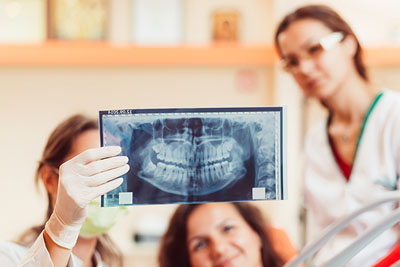Early Childhood Dentist

When your child needs dental care, bring them to our office to see an early childhood dentist. We can help children develop healthy teeth and gums on a daily basis. We recommend that you bring them to our office twice a year so that we can assist them. At an appointment, we will be looking for ways to help reduce the likelihood of your child developing cavities or gum disease in the future. These proactive measures are critical for ensuring the long-term health of your child.
One of the questions we answer on a regular basis is how to reduce the likelihood of cavities forming in the first place. Naturally, we recommend brushing, remind patients of flossing, using antiseptic mouth rinse and visiting our office twice a year. However, there are additional things that you can do to prevent cavities, like fluoride treatments, dental sealants, and even Xylitol.
Xylitol: What Is It?
An alternative to sugar, Xylitol is plant-based. What makes it more beneficial than sugar is that it does not break down and so bacteria cannot feed on it or use it as an energy source. Since tooth decay is caused by bacteria spreading and then secreting acid, consuming Xylitol can be an effective way to neutralize the pH levels in the mouth and fight decay.
When Your Child Should Use It
When you bring your child to our dental office, we will examine them and let you know if we find any cavities. We will then treat any tooth decay and discuss the condition of any teeth that show signs of past cavities. Essentially, if your child has previously suffered from tooth decay, the chance of them developing cavities again is very high. This is because the bacteria levels in their mouth will have been heightened.
To bring those bacteria levels down, they need to brush and floss daily and they need to visit our office for bi-annual teeth cleanings. Furthermore, we may recommend that they begin to use Xylitol as a way to neutralize that bacteria and bring their pH levels to a healthy place.
How to Consume Xylitol
We typically suggest that young children receive Xylitol by sucking on a lollipop after meals. Older children can simply put a mint in their mouth and allow it to dissolve after eating. There is also Xylitol gum but the levels of Xylitol can be low unless you buy it from a specialty health provider or supplement store. All of these options are not only easy but they can be viewed as a treat for your child. You can give them something good for their oral health without fighting about it.
Appropriate Dosage
As an early childhood dentist, we recommend that your child has three servings a day, taken after meals.
Speak with an Early Childhood Dentist
We work with young children every day. As such, we understand how to interact with them and help them to have a pleasant experience. We also know what children are like and what to expect by way of their teeth development. This allows us to make complex and thoughtful recommendations to parents on how to prevent cavities and dental damage going forward. If you have not taken your child to the dentist lately or you are dissatisfied with the level of information you have received, call our office and we will be happy to answer any questions and provide your child with superior care.
